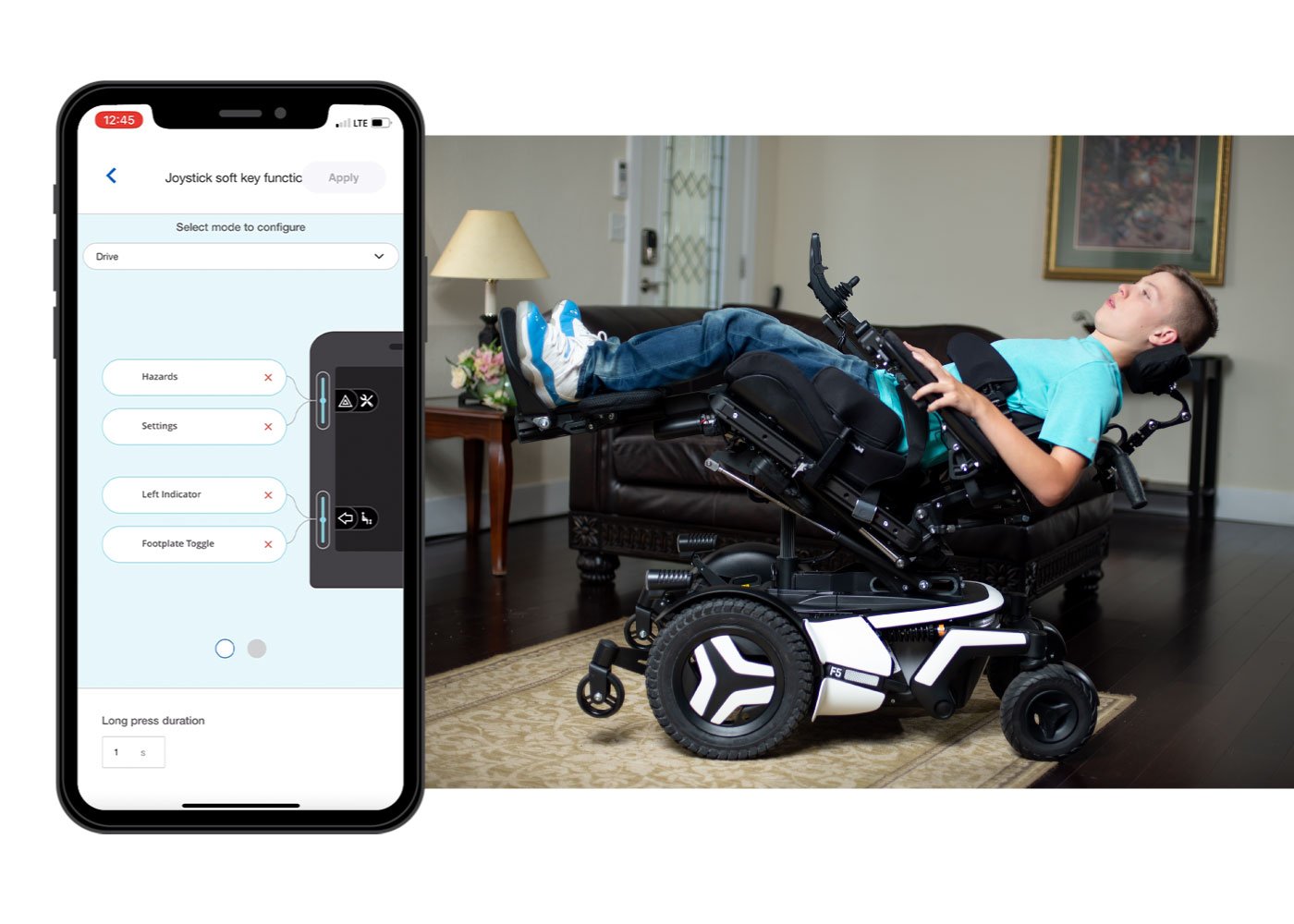In our last blog we reviewed why it is important to program a power wheelchair at delivery. Programming a power wheelchair is how we configure the chair’s settings to meet the specific needs and goals of the end user. Here is a list of some common programming parameters that can be customized to ensure safety and independence.
- Speeds (forward, reverse, turning)
- Rates(acceleration, deceleration)
- Sensitivity (tremor dampening)
- Throw
- Joystick orientation for attendant control
- Saving memory positions (eg; transfers, pressure relief, grooming, cooking, bowel and bladder management, van entry)
- Soft keys
- Saving sequences for standing and Independent Repositioning Mode (IRM)
Sample questions you can ask during the delivery of a Power wheelchair to assess what parameters may need adjusting:
- Before you start:
- “Have there been any medical or functional changes since your evaluation?”
- W/C fit/adjustment:
- “Is this comfortable?”
- “Can you reach your joystick?”
- “Can you perform functional tasks?”
- Programming parameters for driving and function:
- “Can you drive your chair safely in your home environment?” (link to W/C skills test)
- “Can you drive your chair safely outdoors?" (link to W/C skills test)
- “What position does your chair need to be in to complete the following tasks?
- Transfers
- Van entry
- Drive
- Rest
- Pressure management
- MRADLs
- Work
- Leisure
Additional resources to consider for programming a power wheelchair include the Permobil blog on the topic of power wheelchairs along with the alternative drive controls page. You can also explore Permobil's Power Wheelchair Guide for further insights and tips on optimizing the performance of the wheelchair.

Leslie Wade, MOT, OTR/L, ATP
Regional Clinical Education Manager
Leslie Wade, MOT, OTR/L, ATP is an Occupational Therapist and a Regional Clinical Education Manager for Permobil. Leslie joined Permobil in February of 2019. Prior to this, she received her Masters of Occupational Therapy from Virginia Commonwealth University in 2002 and practiced occupational therapy as a full-time clinician for people with spinal cord injuries. Through this she has learned the invaluable need for proper seating & positioning and mobility devices. In addition to providing education in her territory, she also teaches at local PT/OT programs. Leslie served as the VCU Health Safe Patient Handling and Mobility Champion. This opportunity provided her with extensive experience in program development, education, and mentoring.

